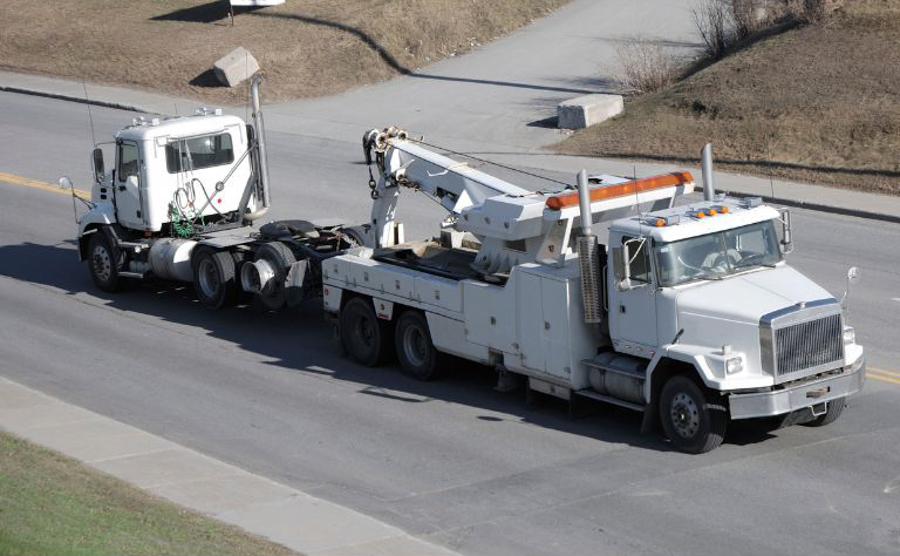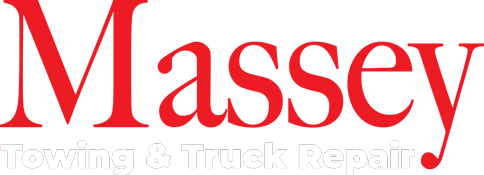Imagine the Texas highways as arteries of the nation’s economy, where giant vehicles—trucks, buses, and machinery—traverse day and night, carrying the lifeblood of commerce. Now, picture the chaos when one of these heavy-duty engines fails. Moving these giants is not easy and could create potential danger without sufficient towing safety protocols.
This is where Dallas heavy-duty towing steps in, not just as a service, but as a guardian of our roadways and a key player in keeping the economic pulse steady. In a world where logistics is king, the role of heavy-duty towing is both critical and fascinating. With the immense size and weight of these vehicles, each towing operation is a testament to precision, skill, and adherence to stringent safety measures.
In this blog, we’ll cover heavy-duty towing safety protocols, uncovering why it’s crucial for more than just moving vehicles—it’s about sustaining the flow of commerce, ensuring road safety, and much more. We offer some tips to reduce truck repair and reduce your need for heavy-duty towing.

What is Heavy-Duty Towing?
Heavy duty towing involves the transportation of large vehicles such as trucks, buses, or large machinery, typically weighing over 26,000 pounds. It requires specialized equipment, including robust tow trucks and advanced securing devices, due to the size, weight, and complexity of the vehicles involved. This type of towing is crucial for moving disabled or damaged heavy vehicles from highways, aiding in accident recovery, and transporting large vehicles with heavy duty engines for repairs or relocation.
Why is Dallas Heavy Duty Towing Important?
Heavy Duty Towing plays a pivotal role in the Texas. economy, particularly in the transportation of goods across the state. The Texas trucking industry, which heavily relies on these services, is the backbone of freight transportation. According to the Bureau of Transportation Statistics, trucks moved an astonishing 11.46 billion tons of freight in 2022, accounting for approximately 72.6% of the nation’s total freight tonnage. The American Trucking Association further reports that this sector generates around $940 billion in revenue annually, showcasing its massive contribution to the economy.
The significance of heavy-duty towing becomes even more evident in the context of maintaining this flow of goods. When vehicles with heavy-duty engines like trucks and trailers break down or are involved in accidents, they not only need to be removed from the road to maintain traffic flow and safety but also require prompt and secure transportation to repair facilities.
Without Heavy-Duty Engine Towing, Commerce Is Disrupted
Without efficient heavy-duty towing services, the delay in moving these large vehicles can lead to significant disruptions in the supply chain, affecting everything from retail businesses to essential services. In essence, heavy-duty towing is not just about moving large vehicles; it’s about ensuring the continuous and safe movement of goods across the nation, thereby playing a crucial role in supporting the U.S. economy and infrastructure.
In addition to moving disabled vehicles, heavy-duty towing is essential for transporting them to facilities for necessary truck repair, ensuring these vehicles are quickly and safely restored to working condition and back on the road, thereby minimizing disruptions in the supply chain.

What Are Towing Safety Protocols For Heavy Towing Services?
Heavy-duty towing is subject to a range of regulations designed to promote towing safety protocols and efficiency in operations. These towing regulations are put in place by various federal and state entities and cover multiple aspects of the towing process:
Licensing and Certification Requirements
Tow truck operators must hold a valid commercial driver’s license (CDL) with the appropriate endorsements for heavy duty towing. Additionally, many states require specific certifications for tow truck drivers, ensuring they are trained in safe towing practices.
Towing Heavy Equipment Standards
The Federal Motor Carrier Safety Administration (FMCSA) and state authorities set standards for towing equipment. This includes requirements for tow trucks, dollies, harnesses, and other equipment to ensure they are suitable for heavy loads.
Weight and Size Limits
Regulations dictate the maximum allowable weight and size for towed vehicles to ensure road safety. These limits vary depending on the type of road and the state.
Hours of Service (HOS) Regulations
Tow truck drivers, like all commercial drivers, are subject to HOS regulations, which limit the number of hours they can drive in a day and in a week to prevent fatigue-related accidents.
Inspection Requirements
Regular inspections of towing vehicles and equipment are mandated to ensure they are in good working condition. This includes checking brakes, lights, tires, and other critical components.
Towing Safety Protocols
There are specific safety protocols for attaching, towing, and unloading heavy-duty vehicles. These protocols are designed to protect the tow operator, other road users, and the vehicles being towed.
Insurance Requirements
Towing companies must carry insurance that covers potential damage to vehicles during towing operations and liability for accidents.
Traffic Laws and Roadway Regulations
Tow truck operators must adhere to state and local traffic laws, including speed limits, lane usage, and regulations specific to towing vehicles.
These towing safety protocols are crucial for ensuring that heavy-duty towing operations are conducted safely and efficiently, minimizing risks to tow operators, other road users, and the vehicles being towed. Compliance with these regulations is not only a legal requirement but also a commitment to maintaining high standards of safety and service in the towing industry.

Truck Towing Safety Tips
Prioritizing safety in truck towing involves a combination of proper training, utilizing the right equipment, and adhering to safety protocols. Drivers should be well-versed in the nuances of handling heavy-duty loads, from the initial hook-up to the final destination.
Perform Regular Maintenance
Regular maintenance of towing equipment is crucial. This includes checking the condition of the tow truck, ensuring that all truck parts, especially heavy-duty engines, are in optimal working order.
Use the Right Towing Equipment
Selecting the appropriate towing equipment for the specific vehicle type and size is essential. This includes using the right type of tow truck and securing devices.
Conduct a Safety Inspection Before Towing
A comprehensive safety inspection should be conducted before commencing any towing operation. This includes checking for any loose parts, ensuring lights and brakes are functioning correctly, and verifying that the connection between the tow truck and the vehicle is secure.
Follow Proper Loading Techniques
Proper loading techniques are vital for balancing the weight and ensuring the stability of the vehicle being towed.
Adhere to Speed Limits and Driving Regulations
Tow truck drivers must adhere to local texas speed limits and driving regulations, especially when towing heavy loads. This helps in maintaining control and reducing the risk of accidents.
Other Truck Safety Protocols
Other important safety protocols include using warning lights and signs to alert other road users, maintaining a safe distance from other vehicles, and staying aware of weather and road conditions which can affect towing safety.
Choose a Partner Who Follows Truck Safety Protocols When Heavy-Duty Towing In Dallas
Ensuring the safety and efficiency of heavy-duty towing operations is not just about compliance with regulations; it’s about a commitment to excellence and safety at every step. That is why you need to choose a partner who follows truck safety protocols.
At Massey Towing Service, we pride ourselves on our expertise in Dallas heavy-haul transport and adherence to the highest safety standards. Our team of professionals is trained in the latest truck towing safety tips and protocols, ensuring that your heavy-duty vehicle is in safe hands.
Reach out to our team to learn more about efficient heavy-duty towing services. We are here to ensure your heavy load is transported safely and efficiently, every time.

